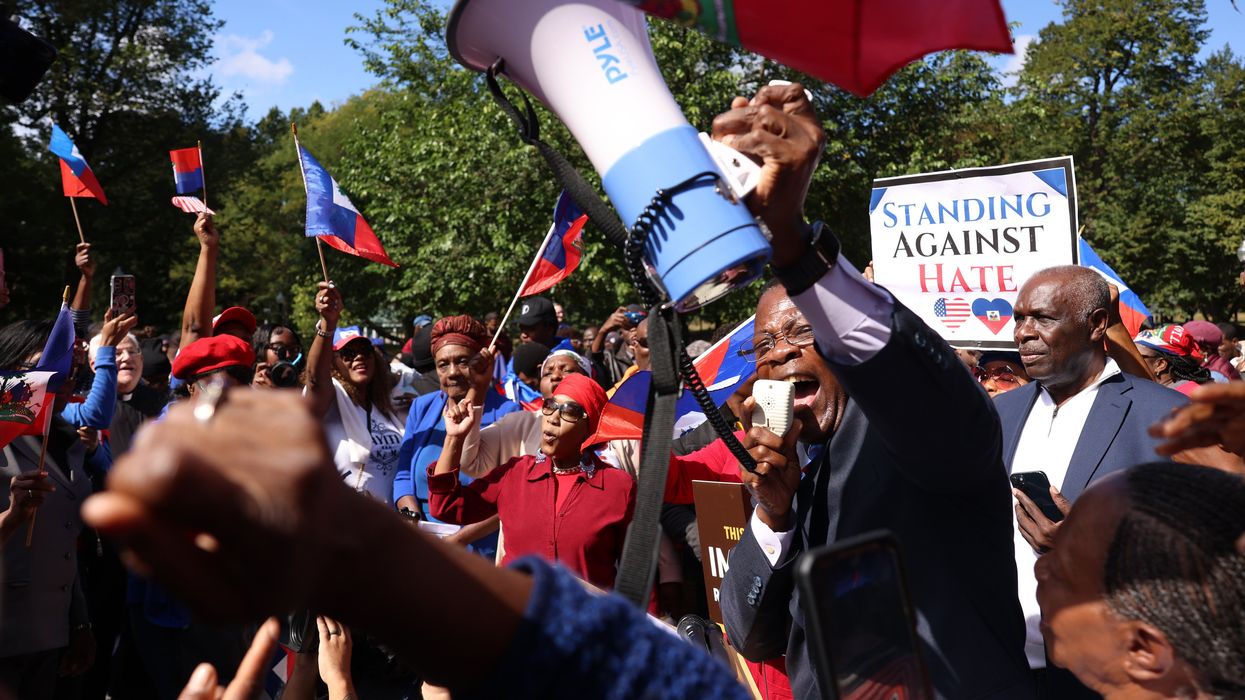Johnson is a United Methodist pastor, the author of "Holding Up Your Corner: Talking About Race in Your Community" and program director for the Bridge Alliance, which houses The Fulcrum.
As a resident and registered voter of the state of Ohio, I am distressed by the rhetoric Donald Trump and J.D. Vance have directed towards Haitian immigrants in Springfield. I am an American citizen who, by default of pigmented skin, could be assumed to be Haitian or something other. It pains and threatens me that such divisiveness and hatred are on the rise. However, it strengthens my resolve to demand a more just, equitable and loving nation and world.
Pursuing racial justice extends far beyond mere policies or practices; it is a deeply personal and profoundly moral imperative. At its core, this work demands that we acknowledge the inherent worth and dignity bestowed upon every human being, recognizing the divine image imprinted on each soul. It calls us to treat all people with the respect, compassion and love that this sacred truth deserves. In a world where racism, antisemitism, Islamophobia, gender bias and other forms of hateful expression and speech persist, we are compelled to act. Silence and inaction in the face of such bigotry are tantamount to denying the very image of God in our fellow human beings.
As people of conscience and faith, we have a universal responsibility to combat hateful rhetoric and actions in all their forms. This is a matter of social justice and a fundamental requirement of our shared humanity. In a democratic society, everyone deserves equal dignity and respect, regardless of race, religion, gender or identity. We fulfill our moral and theological obligations by standing against hate and working to create a world that reflects the sacred truth of human equality. Through love, compassion and determined action, we can help eradicate hateful expressions and speech, building a society that genuinely honors the image of God in every person.
This is the calling I have dedicated myself to. It is what focuses my writing, speaking and teaching as an educator. It informs my work and witness as a Christian minister. It sets my intentions in parenting and responsible citizenship. And it is the work I will keep doing, no matter how hard it gets.
Like generations before me, I do all this because I know we can be better as a nation. We can build a world where every person thrives, every voice is heard and every soul is seen. It will take effort, yes. It will take perseverance, patience and courage. But I have faith in us. I hope, inspired by faith, that if we keep pushing and striving together, we will create a multiethnic democracy, a beloved community.
That is why I encouraged the following:
When presented with hateful and racist rhetoric, it's essential to address it directly. Do not stand idly by when such language is used in your presence. Calmly but firmly tell the speaker that their words are not acceptable. If the hate speech is more public, such as at rallies or on social media, report it to the appropriate authorities. If you witness someone else being targeted, support the victim. Your actions send a message that hate has no place in your community.
Education is critical to combating ignorance, the root of much hate. Sponsor or participate in workshops about different cultures, religions and social issues. Bring together people of various backgrounds for open dialogues. On social media, share informative articles and personal stories highlighting the harm of racism. We can break down stereotypes and foster understanding by learning from each other. Empathy, the ability to share the feelings of others, is the antidote to hate. Practice active listening and try to see things from another's perspective.
Demand that our elected officials denounce hate groups and racist rhetoric. Support legislation that strengthens hate crime laws. Lobby for school curriculums that include diverse histories and promote inclusion. Vote for candidates who run on platforms of unity and respect for all. If you can, donate time or money to organizations that fight discrimination. Policy change may take time, but it is a crucial step towards a more just society. Raising your voice can help create a world where all people are treated with dignity and respect.
I am still determining what the future holds. But I know this: As long as we keep pushing and believing in the promise of a democratic republic, we will get there. We will create a nation where all its people can thrive, where every person can live with dignity and where every person can call this land home.
This I believe. This I will advocate faithfully for. We deserve and are promised a country and leadership better than this. And with divine help, this is the America we can become.




















Trump & Hegseth gave Mark Kelly a huge 2028 gift